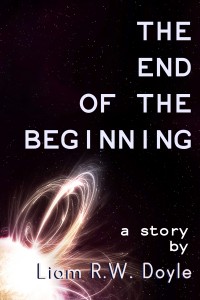
The Atlantic has a really interesting article entitled, “The Return of the Novella, the Original #Longread.” The author discusses how the novella, once the literary standard, is now the red-headed stepchild of the publishing industry. I like this section from Stephen King’s discussion on the topic in Different Seasons:
“I couldn’t publish these tales because they were too long to be short and too short to be really long,” he lamented. King illustrates his point with a geographical metaphor: The short story and novel are like two respected nations sharing a vast, ill-defined, and sordid border region. “At some point, the writer wakes up with alarm and realizes that he’s come or is coming to a really terrible place,” King intones, “an anarchy-ridden literary banana republic called the ‘novella.'” It’s a dark place for a writer to be, and most feel they must keep going, or else turn back.
Then, the article begins to discuss the Melville House Publishing project to publish, in physical print form, classic novellas. Cool idea!
But it took a frustratingly long time for the writer to even touch on the subject of e-books and online publishing. Finally, near the end, he deigns to spend a couple of paragraphs on the topic:
And, increasingly, the prohibition against short books seems to make no economic sense. Thanks to e-readers and digital editions, we’re seeing a renaissance in the mid-length non-fiction. The journalistic equivalent of the novella is thriving—whether it’s through Kindle Singles or Byliner one-offs like Jon Krakauer’s blockbuster expose, “Three Cups of Deceit.” These novella-length#longreads have proven to be profitable for authors and publishers as well as pleasurable to readers. Why shouldn’t the increased formal latitude extended to journalists be granted to fiction writers, too?
That’s all he says on the subject. In an article (a good and informative one, don’t get me wrong) that defends the novella and discusses its potential come-back, he only gives a passing mention to the single most important lifeline to the novella: e-publishing. And, especially, the self-published novella. That’s not to say the established and contracted author wouldn’t want to put out their novellas in convenient packages–even this article mentions how contemporary writers would like to have that option. But publishes have priced themselves into trouble with their hyper-inflated e-book prices. When you’re making customers pay $15 for a digital copy of a book, when the dead tree version is only a buck or two more, how can you justify charging less for 2/3 the size work? I mean, $15 for a product with no physical existence, no material cost, virtually no overhead, regardless of if it’s a 100,000 word work, a 40,000 word work, or a bazillion-word work, they’re in a bind justifying charging their likely $12 price for something that the consumer will more readily pause and wonder why they’re paying that much for the equivalent of a 60-page book.
The self-publisher is in a perfect position to take advantage of the big publisher’s foolishness. As many novel writers are charging $3 to $5 for a novel, they can easily charge a very reasonable $1 to $3 for what the article writer defined: “a narrative of middle length with nothing wrong with it, an ideal iteration of its own terms, that can devoured within a single day of reading.”
Related Posts:







